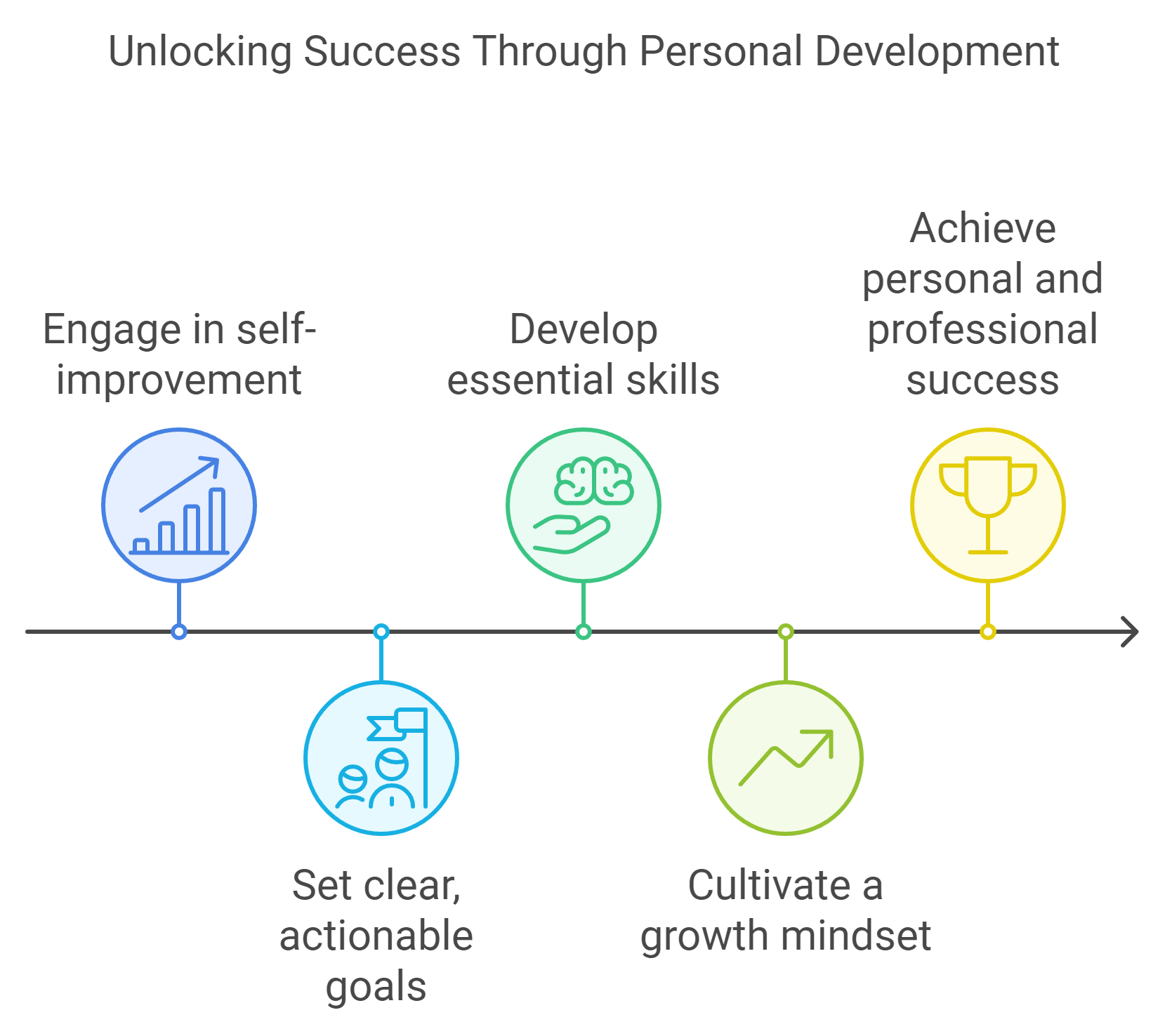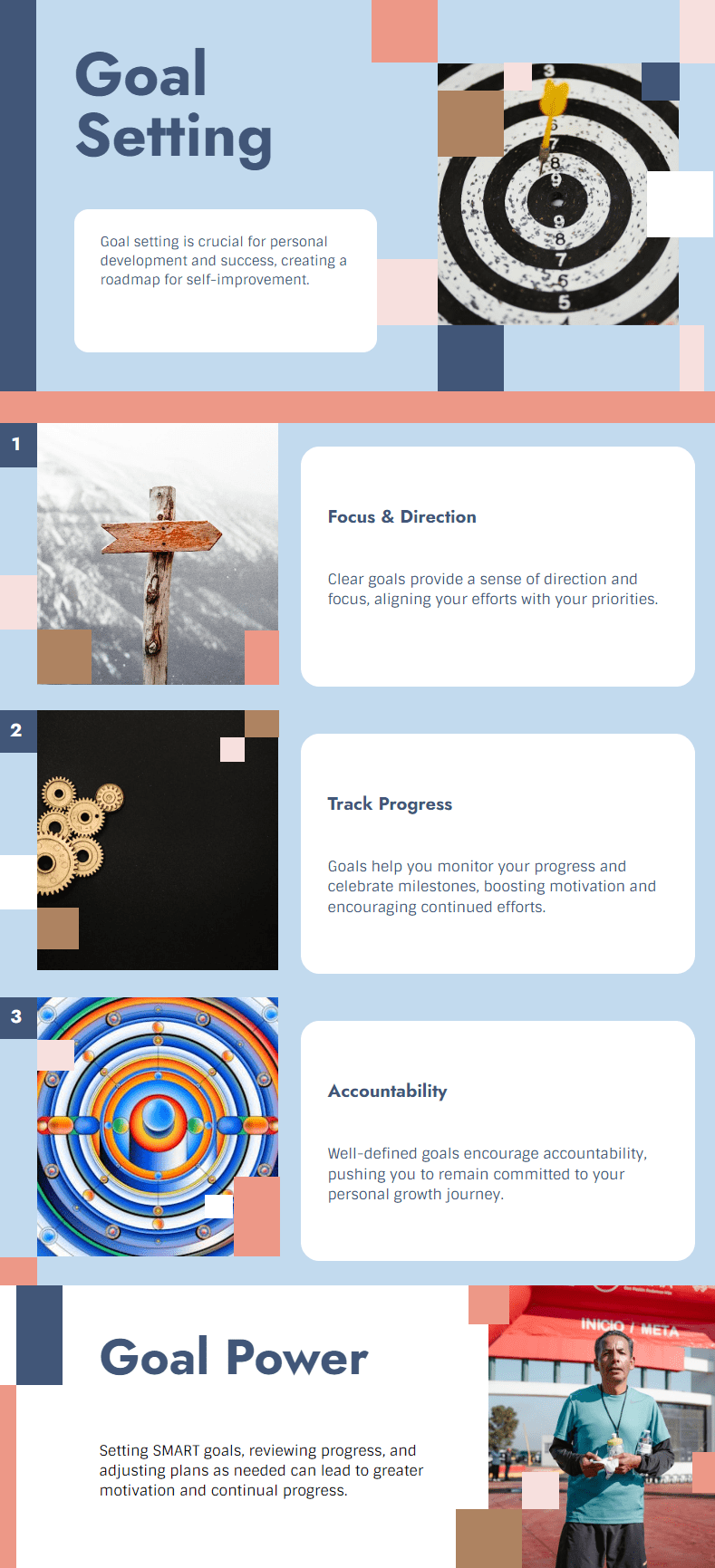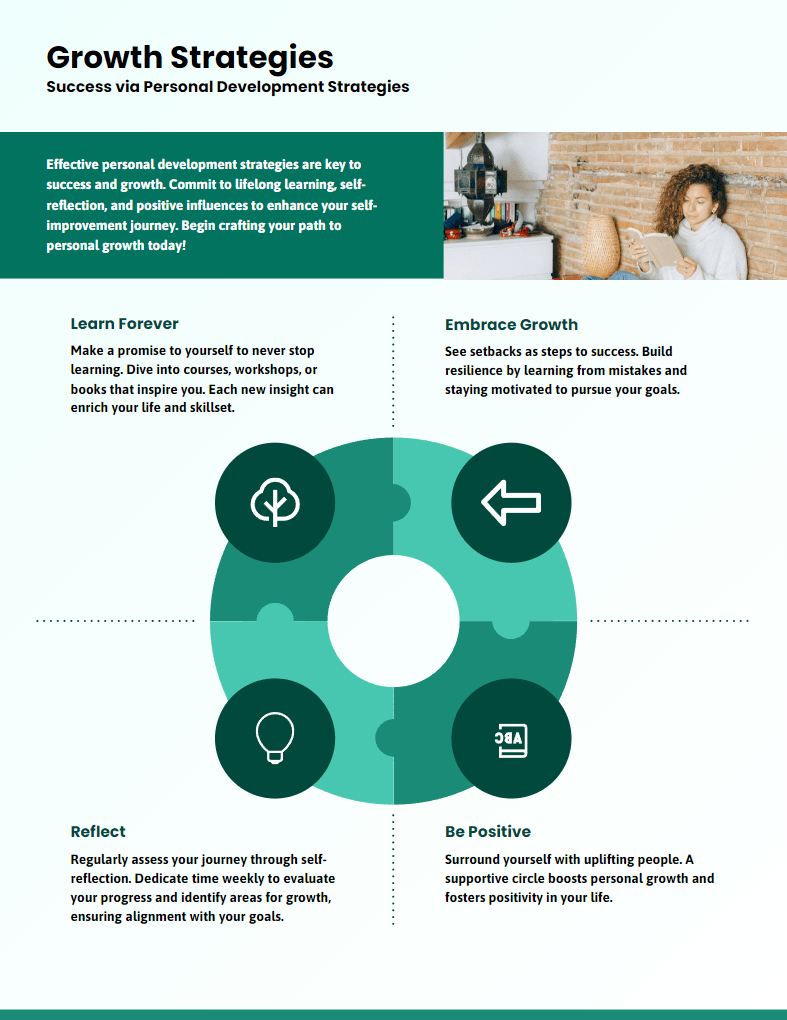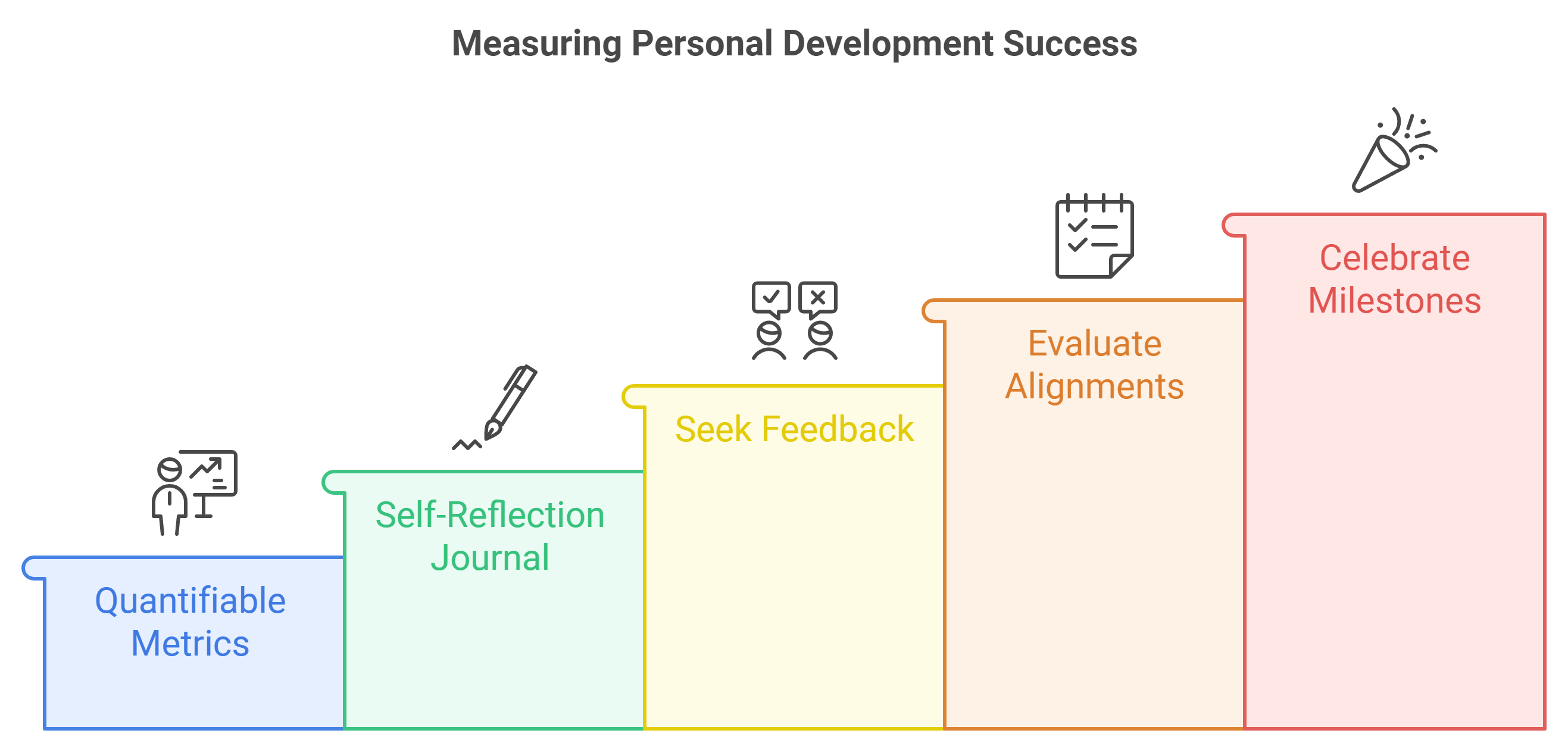In today’s fast-paced world, the pursuit of success goes hand-in-hand with personal development. This article explores the profound impact that continuous self-improvement can have on achieving your goals. By understanding the principles of personal development and how they relate to success, you can set clear objectives that propel you forward. We’ll discuss effective strategies to enhance your development journey, highlighting the crucial role of mindset in fostering growth. Additionally, we will examine ways to measure the results of your efforts, ensuring you stay on track towards your aspirations. Join us as we delve into the importance of personal development and unlock your potential for success.Explore the essentials of personal development, from setting clear goals and strategies to understanding mindset and measuring success for a fulfilling journey.
Understanding Personal Development And Its Impact On Success
Personal development is an ongoing process of self-improvement that encompasses various dimensions, including emotional, intellectual, physical, and spiritual growth. By actively engaging in self-improvement techniques, individuals can enhance their skills, knowledge, and overall personal effectiveness. This, in turn, directly influences their ability to achieve success in both personal and professional realms.
At its core, personal development is about setting clear, actionable goals. Through goal setting, individuals clarify their aspirations and establish a roadmap to success. This process not only provides direction but also instills motivation and accountability. Achieving these goals fosters a sense of accomplishment and self-worth, which significantly contributes to one’s personal growth.
The skills acquired through personal development, such as communication, leadership, and emotional intelligence, play a pivotal role in achieving success. Mastering these skills enhances interpersonal interactions and career advancement opportunities. Moreover, the commitment to continuous skill development cultivates resilience, empowering individuals to navigate challenges effectively.
Furthermore, personal development instills a growth mindset. This mindset is crucial because it encourages individuals to view failures as learning opportunities rather than setbacks. Embracing this perspective not only promotes personal growth but also encourages a proactive approach to professional challenges, thereby increasing the likelihood of achieving long-term success.
In summary, understanding and actively participating in personal development is vital for anyone aspiring to achieve success. By focusing on self-improvement, setting clear goals, and developing essential skills, individuals can significantly enhance their potential and navigate their unique paths toward fulfillment and achievement.

Setting Clear Goals For Effective Personal Development
Setting clear goals is a fundamental aspect of personal development that can dramatically influence your journey toward achieving success. By establishing specific, measurable, achievable, relevant, and time-bound (SMART) goals, you can create a roadmap that guides your self-improvement efforts and encourages consistent progress.
Why Goal Setting Matters
Goal setting is crucial for several reasons:
- It provides direction and focus, ensuring that your efforts align with your priorities.
- Clear goals help you track your progress and celebrate milestones, boosting motivation.
- They encourage accountability, pushing you to remain committed to your personal growth journey.
How to Set Effective Goals
To maximize the impact of your goal setting, consider the following steps:
1. Identify Areas for Growth: Reflect on the skills or aspects of your life you want to improve. This could range from professional skills to personal relationships.
2. Define Your Goals: Formulate your goals clearly and specifically. Instead of saying I want to get better at my job, try I want to complete a certification in my field by the end of the year.
3. Break Goals Down into Smaller Steps: Large goals can be overwhelming. Split them into smaller, manageable tasks that can be tackled individually, making progress feel more achievable.
4. Set Deadlines: Assign a timeline for each goal. This creates a sense of urgency and helps prioritize your tasks effectively.
5. Review and Adjust Your Goals: Regularly review your goals to assess your progress. Be willing to adjust them if your circumstances or priorities change.
Incorporating goal setting into your personal development strategy is an essential practice for fostering skill development and enhancing your journey towards overall success. Well-defined goals can lead to greater motivation and continual progress, guiding you toward realizing your personal and professional ambitions.

Strategies To Enhance Your Personal Development Journey
Enhancing your journey of personal development is essential for achieving success and fostering personal growth. Here are several effective strategies that can guide you in this process:
1. Embrace Continuous Learning
To cultivate self-improvement, make learning a lifelong commitment. Whether through formal education, online courses, or self-directed reading, expanding your knowledge will contribute greatly to your skill development and overall growth.
2. Develop a Growth Mindset
Adopting a growth mindset means viewing challenges as opportunities for growth. Embrace failures as lessons rather than setbacks, which can enhance your resilience and passion for goal setting in your personal development journey.
3. Practice Self-Reflection
Regular self-reflection helps you assess your progress and understand your motivations. Create a dedicated time each week to review your achievements and areas for improvement, ensuring that you stay aligned with your personal and professional goals.
4. Surround Yourself with Positive Influences
The company you keep plays a significant role in your growth. Engage with individuals who inspire and support your journey and foster an environment conducive to personal development.
5. Create an Action Plan
Developing a strategic plan is essential for staying organized and focused. Outline specific steps you can take towards your personal development goals, including timelines and measurable outcomes to track your progress.
6. Prioritize Your Well-being
Personal development is not just about skills; it also involves physical and mental health. Prioritize activities that enhance your well-being, such as exercise, mindfulness practices, and a balanced diet to support your overall development.
7. Celebrate Your Achievements
Acknowledging and celebrating milestones, no matter how small, instills motivation and encourages continued effort in your personal development journey. Recognize the hard work you’ve put in towards achieving success and personal growth.
Implementing these strategies can significantly enhance your personal development journey, ultimately aligning you with your ambitions of achieving success through effective goal setting and continuous self-improvement.

The Role Of Mindset In Personal Development Success
Your mindset plays a crucial role in the journey of personal development and is often the determining factor in achieving success. A growth mindset, characterized by an attitude that embraces challenges, persists through setbacks, and sees effort as a pathway to mastery, is essential for self-improvement.
When you cultivate a positive mindset, you are more likely to engage in goal setting that aligns with your aspirations. This positive outlook enables you to view failures not as insurmountable obstacles but as learning opportunities. Consequently, this resilience fosters a commitment to skill development that is vital for personal growth.
Furthermore, your mindset influences your motivation levels. A strong belief in your capacity for personal growth can propel you forward, encouraging you to invest time and resources into your personal development journey. This intrinsic motivation acts as a driving force in overcoming challenges and achieving your goals.
Lastly, surrounding yourself with like-minded individuals who share similar goals can further reinforce your positive mindset. Engaging with a supportive community can provide encouragement and accountability, facilitating not only your personal development but also the achievement of collective success.
In summary, recognizing the role of mindset in personal development is essential. It shapes your perceptions, drives your actions, and is a vital component in your journey toward self-improvement and overall success.

Measuring The Results Of Your Personal Development Efforts
Measuring the effectiveness of your personal development efforts is crucial in understanding whether you are on the right path towards achieving success. It allows you to evaluate your progress, identify areas for improvement, and stay motivated on your journey of self-improvement. Here are some effective strategies to gauge the results of your personal development activities:
1. Use Quantifiable Metrics
Establish specific, quantifiable metrics that align with your goal setting. For instance, if you are focusing on skill development, track the number of new skills mastered or certifications obtained within a timeframe.
2. Self-Reflection Journals
Maintain a self-reflection journal to document your personal growth. Regular entries can help you reflect on your experiences, thoughts, and feelings, allowing you to monitor your emotional and psychological progress over time.
3. Seek Feedback
Engage peers, mentors, or coaches to provide constructive feedback on your development. Their insights can offer a different perspective on your growth and highlight strengths and weaknesses you may not have recognized.
4. Evaluate Alignments with Goals
Periodically assess how your personal development activities are aligning with your set goals. This ongoing evaluation can help you refine your focus and ensure that your efforts are directed towards meaningful outcomes.
5. Celebrate Milestones
Recognizing and celebrating small milestones can reinforce your motivation and commitment to your personal development journey. Each achievement, no matter how small, contributes to your overall success.
By implementing these techniques, you can effectively measure the results of your personal development efforts, ensuring that you stay aligned with your objectives and continue progressing toward achieving success in your personal and professional life.

Frequently Asked Questions
What is personal development?
Personal development refers to the ongoing process of self-improvement, encompassing a variety of activities aimed at enhancing one’s skills, knowledge, and overall quality of life.
Why is personal development important for success?
Personal development is crucial for success because it helps individuals identify their goals, improves their skills, and boosts their self-confidence, all of which are essential in achieving personal and professional aspirations.
What are some methods for pursuing personal development?
Common methods for pursuing personal development include reading self-help books, attending workshops or seminars, setting personal goals, seeking mentorship, and practicing mindfulness and self-reflection.
How can personal development impact career growth?
By actively engaging in personal development, individuals can improve their work-related skills, enhance their leadership qualities, and adapt to changes in their industry, leading to better career opportunities and advancements.
Is personal development a one-time process?
No, personal development is a lifelong journey that requires continuous effort and adaptation as individuals grow, encounter new challenges, and set new goals.
Can personal development improve relationships?
Yes, personal development can greatly improve relationships, as it fosters better communication, empathy, and conflict resolution skills, allowing individuals to connect with others more effectively.
How can someone get started with personal development?
To start with personal development, one can assess their current strengths and weaknesses, set clear goals, create a personal development plan, and seek resources such as books or courses that align with their aspirations.














